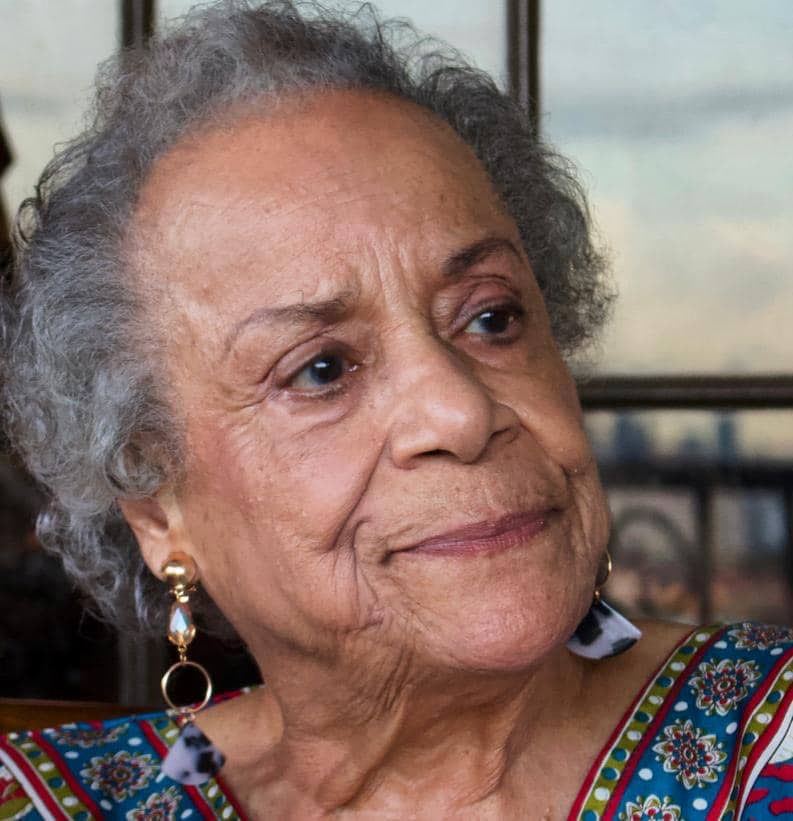She was a champion of minority education, a symbol of the Windrush generation, a tireless worker for equality and an extraordinary leader in community development.
When Jocelyn Barrow died on April 9, her list of achievements seemed far too much for any one lifetime.
The Windrush Foundation had deemed Barrow a “community champion,” and she had an impressive list of firsts: first black women Governor of the BBC; founder and deputy chair of the Broadcasting Standards Council; first black woman to be awarded the Order of the British Empire (OBE) in 1972 and first black woman to earn the title of Dame in 1992.
As a Windrush immigrant to the UK, her work against job discrimination stood out. She served as a founding member of CARD (Campaign Against Racial Discrimination) and advocated for equal opportunity in education, in the workplace and in housing.
The Windrush generation refers to the immigrants who were invited to the UK between 1948 and 1971 from Caribbean countries such as Jamaica, TT and Barbados. The name derives from the ship MV Empire Windrush, took 500 Jamaicans to the UK.
According to the British Black History website deemed her a “Windrush and race relationship pioneer” and noted she was one of the founders of the Campaign Against Racial Discrimination.
Commenting on her achievement, PNM stalwart Ferdie Ferriera said, “Jocelyn should be remembered as a pioneer and trailblazer.”
“Under extremely difficult circumstances of the day, she charted a course, not only for Caribbean people, but African people, proving to the world that given an opportunity, black people were as good as and better than many. Very few people here know of her here because people do not know their history well enough, but she put us on the world map,” says Ferreira.
But perhaps Barrow’s most outstanding achievements stemmed from her work in education. Her astute observations about how minority children found British education irrelevant opened a dialogue on purposeful education that continues today. To tackle the issue of minority education, she founded the organisation Each One Teach One, which offered educational support for Caribbean children on a community level.
Barrow proved to be a master at networking and collaboration.
“One of the things I learned not to do was to bang my head against brick walls, but instead to (look) and work with the people who would identify with my cause,” she said on her website.
Her leadership skills created many opportunities to head committees in education and housing reform. Realising the role of history in building confidence and a sense of purpose, she established the Liverpool Slavery Gallery, the North Atlantic Slavery Gallery and Maritime Museum in Liverpool.
Poised and elegant; strong and confident in her own right, Barrow, a masterful communicator said when she was appointed a dame, “I was brought up to feel that nobody could prevent me from doing what I wanted to do.”
She believed communication to be a vital skill for achievement that even trumped protest.
“There are changes that you can make without being confrontational without causing chaos or shouting or screaming,” she said.
Barrow served as Governor of the Commonwealth Institute for eight years. Her many government appointments reflected her expertise in history, education, communication and community relations. She served as vice-president of the United Nations Association in the UK and Northern Ireland, and as a Trustee to the Irene Taylor Trust providing Music in Prisons. Barrow thought of everyone in her quest for equality – including women.
Barrow’s passion for equality emerged in the 60s, during the Civil Rights movement. She was born in Port of Spain on April 15, 1929, and became a founding member of the PNM.
When she migrated to England, she noted the difficulty blacks had in getting jobs.
“They couldn’t get proper housing and had to put up with people telling them to go back where they came from or refusing to serve them in shops,” she said in an interview for the Camden News Journal.
Her legacy to education, communication and equality are immeasurable. She will be remembered as one of the greatest black women of the century.

